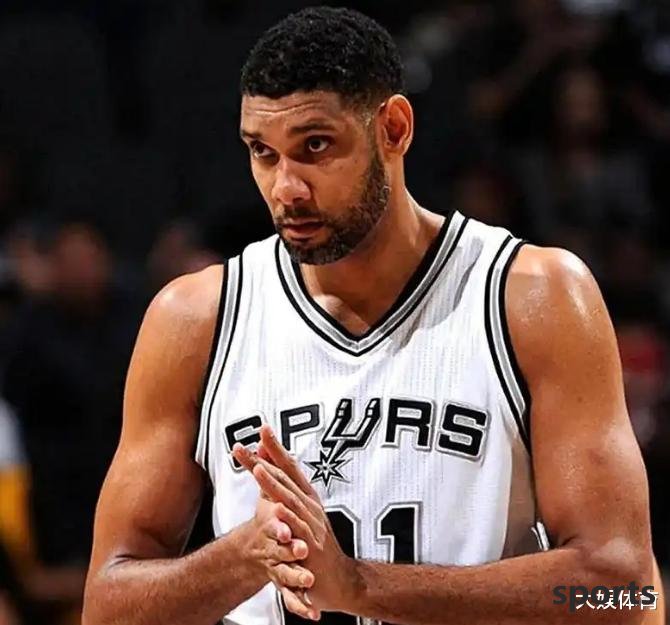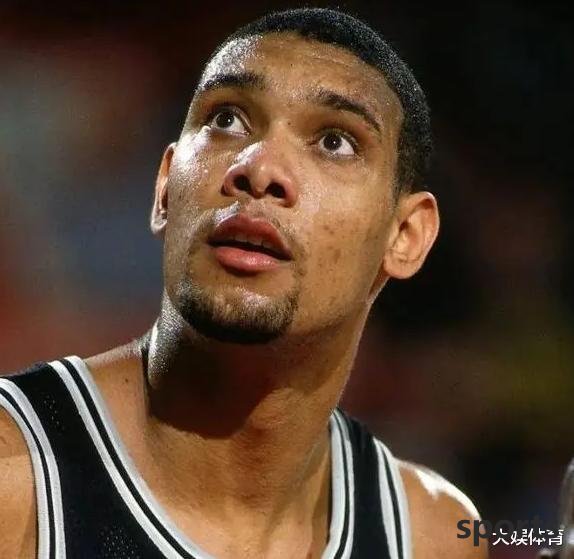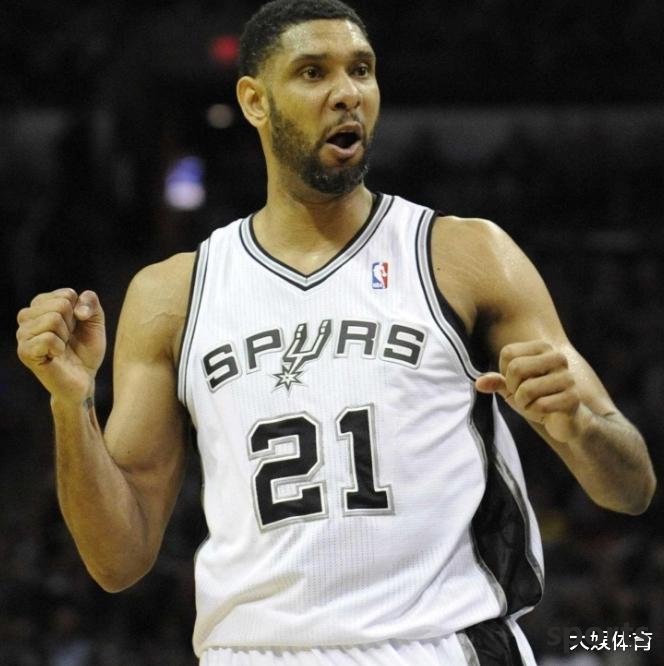Addy Dports > Basketball > Why is Duncan’s identity as the No. 1 power forward in history no doubt? There are few outstanding power forwards
Why is Duncan’s identity as the No. 1 power forward in history no doubt? There are few outstanding power forwards
On June 28, in the NBA's history scroll, the debate about "the best in history" never stopped. Jordan's GOAT status, James' all-around legend, and the battle between Magic and Bird's Yuliang are all topics that fans are talking about. However, there is a position where the strongest person rarely causes controversy - Tim Duncan's position as the number one power forward in history has almost become a consensus in the basketball world. Behind this rare unified perception is the comprehensive result of Duncan’s absolute dominance built with his 19-year career, the comprehensive crushing of the honor system, and his revolutionary reshaping of the power forward position.
### 1. The crushing advantage of the historical honor system
Duncan's honor showroom is enough to make other power forwards beyond the reach: 5 championships (1999, 2003, 2005, 2007, 2014), 3 Finals MVPs (1999, 2003, 2005), 2 regular season MVPs (2002, 2003), 15 All-Stars, 15 Best Team (10 Teams), and 15 Best Defensive Teams (8 One Defense). Any single item in this resume is great, and their collection forms a gap that other power forwards are insurmountable. Compared with the same great Karl Malone - 2 MVPs, 14 All-Stars, 11 One Trouble, but no championship in his lifetime; Kevin Garnett 1 MVP, 9 One Trouble; Dirk Nowitzki 1 MVP, 12 All-Stars. Duncan has accumulated at least 2-3 times the accumulation of other top power forwards in core honors, and this difference in magnitude completely eliminates the space for controversy.
What is more important is the "quality" of Duncan's honor. He is not only the cornerstone of the Spurs dynasty, but also won the championship as the absolute core in three different eras (Twin Towers, GDP era, and post-GDP era). In the legendary season of winning the single-core championship in 2003, he won the regular season MVP + the finals MVP, and averaged 24.7 points, 15.4 rebounds, 5.3 assists and 3.3 blocks per game in the playoffs. G6 in the finals contributed a four-double with 21 points, 20 rebounds, 10 assists and 8 blocks. This dominance displayed on the highest stage completely consolidated his historical position.
### 2. Epoch-making innovation of the technical system
Duncan redefined the technical standards of power forward. The power forwards in the early NBA were more blue-collar roles, and they did not gradually improve their offensive position until McHale, Barkley and others appeared. Duncan integrates center-level back-body skills (45-degree shots, left and right hooks), power forward's mobility, and point guard-level response (3.0 assists per game in his career), creating an unprecedented "full-body power forward" template. His low-level singles efficiency has remained above 0.95 points per round for many years (top level in the same period), and his singles shooting percentage in the 2002-03 season was as high as 51.3%. This kind of offensive method without blind spots makes the opponent unable to use traditional four-position defensive resources to limit him.
Downcan set a new benchmark on the defensive end. His defensive influence far exceeds the 2.2 blocks per game reflected in the basic data - through accurate position selection and excellent assisted defense timing judgment, he built the Spurs' defensive system for twenty years. The contribution of defensive victory in 2004-07 exceeded 6.5 for three consecutive years, which is rare in history. Modern basketball data analysis shows that Duncan's career has reduced the shooting percentage of opponents by 8.3 percentage points, which is better than all inside players in the same period.

### 3. The emergence of Duncan directly promoted the strategic upgrade of the power forward's position. Before him, top power forwards such as Malone and Barkley were more of scoring positions; and Duncan proved that this position could become a tactical center. The "strong and weak side transfer system" developed by Popovich with him as the core became the prototype of the tactics of the Warriors, Heat and other teams later. In the 2014 Finals, 38-year-old Duncan used data per game to support the team's basketball system. His ability to support high positions and handle balls after pick-and-roll directly inspired the development of modern space-type four positions such as Zhu Meng Green.
Compared with other historical power forwards: Nowitzki expanded his shooting range to outside the three-point line, but his defense has shortcomings; Garnett's defense coverage is amazing, but his offensive end lacks stable killer moves; Antetokounmpo has stronger athletic talent, but his technical delicateness is still far from the stability of the playoffs. Duncan perfectly balanced all dimensions like precision instruments, and this comprehensiveness made him a template that later generations could not replicate.

### 4. The lasting rule of the times leap
From the No. 1 pick in 1997 to the retirement in 2016, Duncan's peak period spanned the three tactical eras of the NBA. The muscle jungle against O'Neal and Webber in the early stage, the technical showdown with Garnett and Nowitzki in the middle stage, and the young Davis and Green can be restricted in the late stage. This super long standby top competitive state is unique among the four forwards (Duncan, Garnett, Nowitzki, Weber). Even at the age of 38, he still gave Peak Bosh only 9 points in a single game in the 2014 Finals. The career PER value is 24.2 and the victory contribution is 206.4, both ranking first among power forwards in history.
### 5. Absolute advantages under benchmark comparison
When we compare Duncan directly with other top power forwards, the gap is more obvious:
- **vs Carl Malone**: Duncan has 3 championships + 3FMVP, Malone has 10,000 points but 0 championships;
- **vs Kevin Garnett**: Duncan has 4 championships + 3FMVP + 1MVP, with a considerable defensive influence but richer offensive methods;
- **vs Dirk Nowitzki**: Duncan has 4 championships + 2FMVP, Nothing has a longer shooting range but has two defensive levels;
- **vs Antetokounmpo**: As of 2025, Antetokounmpo**, but the comprehensiveness of technology and playoff stability have not yet reached Duncan's level.

This cross-age comprehensive suppression makes any discussion trying to challenge Duncan's status seem unconvincing. As Popovich said: "Tim is like a Swiss Army knife, which can meet all the needs of basketball games. Other power forwards may be more prominent in some respects, but no one can be as perfect as him."
### Conclusion
The unshakableness of Duncan's position as the No. 1 power forward in history is essentially a natural choice for basketball evolution. Not only did he collect enough hard honors, he also redefines the value dimension of this position with his groundbreaking technical style.
tỷ lệ bóng đáRelated Posts
Jaylen Brown: The Nets played tougher and more aggressive, and they deserved to win
BasketballHupu News November 22 Today’s NBA Cup group match, the Celtics lost to the Nets 105-113. After the game, Celtics player Jaylen Brown was interviewed by reporters. Brown said: We must play tougher. This is non-negotiable, and we did not do it tonight...
moreStarting with the Clippers’ thunder, today’s Western Conference is experiencing the backlash of the “arms race”
BasketballBut looking at the Western Conference rankings, we are actually only one and a half games away from the 10th-place Jazz (5 wins and 9). The Jazz will play the Lakers, Warriors, Thunder, and Rockets in succession next, and they are destined to win le...
moreUS media: Shepard’s gambling defense and missed key free throws gave the Rockets a headache, but the future is bright
BasketballNovember 22 News: In the NBA Cup group stage, the Nuggets narrowly defeated the Rockets 112-109. The American media TheDreamShake commented on Reed Shepard's outstanding performance. "On the positive side, Reed Shepard was outstanding tonig...
more
Hot Posts
- If Jordan did not retire midway, 40,000 points would be almost certain!
- 50 points against Curry! Comparable to Jordan and Chamberlain! The most underrated superstar in the NBA
- Perkins: I publicly reminded Westbrook to control his emotions three or four years ago, otherwise he might not have a ball to play.
- Rockets 8 for 1 Durant ranks first! ESPN announces 15 votes: Curry becomes the best in the United States
- Keep the present and win the future. Is it reasonable to have three of the strongest teams in the past five years in front of the Rockets?
- Leonard s Yin-Yang contract has caused heated discussion! He was ridiculed to make two money without working. The Lakers missed him in 19 years.
- Suns Exclusive: Some Manchester United first-team players think 39-year-old three-pointer Heaton deserves the chance
- 19+5 in 24 minutes! Doncic s debut performance was good: three-pointers are very accurate
- Warriors sign Curry + Payton Jr. at the base salary: Curry brothers join forces to renew the contract
- Four teams are rushing to demand James? The rumor of the trade of 40-year-old James has triggered the NBA offseason.
Recent Posts
-
Murray was only the No. 7 show in 2016. Who are the first 6 players? How to develop in the league
-
Duan Ran s long article reviews the story with James: He was not angry when he used a trash can as an interview table temporarily
-
Lillard, who is interested in being cut, wants to create an NBA senior version of the Splash combination?
-
The whole league is looking forward to seeing how the Warriors deal with Curry s contract in 2027
-
Manchester United s summer window balance technique: Wait for the transfer window to turn
-
1 for 9! Thunder two deals! Changed the western pattern
-
830 million! Just after winning the championship, the Thunder’s problem arose?
-
Curry said he would play for at least two more years! Talking about the disadvantage of signings by the Warriors: As long as the core lineup is still there, you will not be afraid of any opponents
-
13 rookies were invited to the Green House! New rumors about letter Durant, the Lakers are interested in reuniting with the second place
-
The Clippers lost to the Celtics, Harden 37+7+8, Jaylen Brown 33+12, Pritchard 28 points